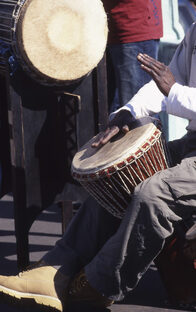
Nostradamus was a 16th-century seer. He and his prophecies—revered by some, ridiculed by others—are still well known today, centuries after he lived, and continue to be the subject of debate(1).
Nostradamus was born in France in 1503. He first worked as a physician and began his medical practice in the 1530s, although he did so without a medical degree. He began making prophecies about 1547, and he published his prophecies in a book entitled Centuries (1555). He wrote his prophecies in quatrains: four lines of rhyming verse. The quatrains were grouped in hundreds; each set of 100 quatrains was called a century. Nostradamus gained notoriety during his lifetime when some of his predictions appeared to have come true. He was highly sought after and was even invited to the court of Catherine de’ Medici, then the queen consort of King Henry II of France, to create horoscopes for her children (1).
Nostradamus’s predictions tended to be about general types of events, like natural disasters and conflict-related events that tend to occur regularly as time goes on. Some people believe that his prophecies have predicted actual events, such as the death of Henry II, the French Revolution, the rise of Napoleon, the rise of Adolf Hitler, and the 9/11 attacks. Others maintain that because his prophecies tend to be about general types of events that occur frequently throughout history—and are written in a cryptic and vague manner—it’s possible to find one that seems to match almost any event that has occurred)(1).
 The French philosopher wrote 6,338 prophecies, suggesting when, where and how our world will dramatically end . . .
The French philosopher wrote 6,338 prophecies, suggesting when, where and how our world will dramatically end . . .
He wrote: “The Moon in the full of night over the high mountain / The new sage with a lone brain sees it: By his disciples invited to be immortal, Eyes to the south. Hands in bosoms, bodies in the fire.” (2)
When philosophers discuss prophecy, they are typically interested in prophecies concerning the contingent future . . . What special philosophical issues are raised by this kind of prophecy? (3)
Let’s say that a future event is contingent if and only if it is not determined that it will happen and also not determined that it will not happen. (For more on the notion of determinism, see the entry on causal determinism.) Now suppose that based upon the revelation of an infallible God, a person prophecies that some future contingent event will occur. Since God cannot be wrong, does it follow that the future contingent event must occur? And if it must occur, how can it be a contingent event? (3)
Another way of trying to solve the puzzle is to deny that God has knowledge of the contingent future. According to this approach, often called “open theism”, there may be future contingent events, but God does not know about them. God does not know about them either because one, there are no true propositions now that report what future contingent events will occur, or because two, it is impossible for anyone, including God, to know such true propositions, or because three, God chooses not to know them in order to preserve our freedom. Open theists also typically argue that foreknowledge alone would be providentially useless to God. How can open theism explain prophecies that appear to make reference to future contingent events? (4)
William Hasker, perhaps the most prominent advocate of open theism, addresses this problem explicitly, and suggests a three-fold response. First, he points out that the main function of prophecy is not to foretell the future, but to reveal God’s will. Many prophecies, in fact, have a conditional character, such as “If a nation does not do such and such, then it will be destroyed” (see Jeremiah 18:7–10, for example). Second, many prophetic predictions are based upon existing trends and tendencies, which provide God with enough evidence to foresee the future. (4)
The Lion is a symbol of the prophetic. The Lion of Judah roars and he is fierce. Imagine a lion’s roar. He is not afraid of catastrophe. The face of God is as reserved at times and foreboding as a rock face. Yet God has many faces. This blog is for all followers of Jesus Christ. There is something miniscule about belonging, and something as great as meeting a lion, and we belong to him. This blessing is that of oil poured out in the end times.
 It would seem as if the challenges we face, in persevering through trial are immense. It is all we can do to try to maintain our standard of living. It is all we can do to be resilient in the face of such stress. In this time also much faith has been given to us.
It would seem as if the challenges we face, in persevering through trial are immense. It is all we can do to try to maintain our standard of living. It is all we can do to be resilient in the face of such stress. In this time also much faith has been given to us.
We can’t help but recognize that this must be what was predicted not only by Christ. It was also predicted by the disciples, including the Apostle John in the Book of Revelation. It was predicted by symbols and by signs, and it is important that we turn to the prophetic in this time, and not just think that prophets must be true or they are false. This is somewhat black and white thinking and there are so many colours in between. Anyone in the church practicing the gifts of the spirit has the right to mature, to be trained, to be educated, to use their gifts for God’s glory, and their words are take it or leave it. With discernment and maturity we can appreciate the gifts in the body.
The walk of anointing is complex, and it is as if the Oils of the Holy Land have been added to our extra-virgin olive oil. We are not just oil, we are precious. We are aloes, we are nard, we are cassia, we are frankincense. As precious as a year’s fruit worth of labour, is our worth in cost. Not only that we get the exciting role of being poured out on Jesus feet, in a sense as if for the Earth’s burial.
This can be one of the gravest mistakes we make, as Christians, is to miss the anointing. The Holy Spirit desires to pour it out. If a person walked around with the anointing all day, everywhere they went, we would seriously ask, “What is that?”
What is that like fine oil that puts such a glow on their face, what is that fine substance that hangs in the room around them. We would sincerely mistake it for something else. We might even accuse the bearer of such goodness of all sort of things, in our misunderstanding of the basis for a kingdom touch. Or even a touch piece.
We need to experience the joy of the Lord, undeserved. We need to know what an anointing is. What is the role of the anointing oil in healing? What is the measure of the oil poured out in situations like worship and prayer? Do we need to get out the olive oil?
We were given a time, times, and half a time, and now my friends that end is drawing near. I write this as I don’t know what the end will hold, and how we will endure. But I chasten you to stay strong and not give in to depression, suicide or any other temptation as is common to humankind.
 There will be wars, there will be signs in the heavens, there will be plague and catastrophe. Economic recession is close at hand with all these terrors, and yet we will the family unit to keep on, to keep our loved ones intact. We aim to overthrow the chaos and dissension we have been met with. In terms of acceptance of any situation of loss, grief is deep that things in life did not go the way we planned. Weddings have been postponed, children have been born into a time of ravage and famine, people have had to flee their homelands with their very lives.
There will be wars, there will be signs in the heavens, there will be plague and catastrophe. Economic recession is close at hand with all these terrors, and yet we will the family unit to keep on, to keep our loved ones intact. We aim to overthrow the chaos and dissension we have been met with. In terms of acceptance of any situation of loss, grief is deep that things in life did not go the way we planned. Weddings have been postponed, children have been born into a time of ravage and famine, people have had to flee their homelands with their very lives.
How do we stand in this time with our prayers in their imperfection still rising to heaven like incense? The angels are holding golden bowls of the tribulation of the saints. And yet, our worship reaches the ears of the Most High. We are not alone when in the presence of Christ.
One day at the appointed time we will see him face to face. Here when we face God alone, without family, without relatives, without friends, we will come to know who we really are. It is in this meeting that we will turn from the shadows into the fullness of our resurrected self. We will become who we are in Christ.
What we have spent a lifetime cultivating in the inner man will become the outer form. The mansions we have invested all our earthly and spiritual wealth in, in heaven will be the body we now inhabit. This is the resurrection we can hope for and put our confidence in. There are things we should know before we die, and that no one is going with us, and we can’t take our stuff is paramount.
Yet the very attack on our faith during the end times is one of the disruption of intimacy. We see it in our spiritual lives. We see it in our personal lives. We see it with our friends, we see it with our enemies.
By the time Jesus returns a great many people of the world will have mistaken intimacy with Christ for erotic love, and even sacrificed their children on the altar of it.
They think that they are drawn to the one when they desperately need the love of Christ. They really can’t tell the difference, and oh how the prophetic mourns for them. Their interest in anything but erotic love is zilch. It is a fixation, it is a distortion, and it can easily become an addiction. This is the great void. It is the great delusion of truth, that love with another individual or the bringing forth of offspring is saviour.
In this very act of worship of earthly love we trade the real lion for a skin, and we technically worship a donkey. It is the donkey of promiscuity. It will make us look like a fool unless we are mighty cool. For how many lovers can one have before it is too many? The numbers go on and on in the modern world among young men and women.
Beyond the great composers, the authors of the Hymns of the Faith, we have contemporary worship music. It is written by musicians. In the early days of the Bible, these anointed musicians were called Levites. A lot of new worship music is produced today, and featured on Christian radio. This is attracting contemporary society in droves. Worship leaders strive to present music in church settings that is cool, singeable for corporate worship, theologically correct, and an attractive sound. But we are really using worship music as a medium, a means of connecting in an intimate way with our Creator.
I speak in this blog about the process of becoming a Christ follower in the prophetic. I speak of the languages of love, and the balance of love, and what the love of Christ entails. There are different roles in every church and it is important not to mistake a prophetic person’s role for yours. Priests face God on behalf of the people, and interceded on their behalf. They make an argument to God. Prophets face people on behalf of a deity. They speak words that sound like they came from God’s mouth, or share images that God is speaking to the body, words, or scriptures. They may make an argument to God also, in turning God’s wrath away in an act of justice.
There is a justice in the universe, and the laws of nature are a good example. We can’t break those laws without nature crying out in anguish eventually. If God has an issue with us in our sin, we must make a securely rooted argument to him that he might understand the words of the prophet and relent. The prophets in the Old Testament did this when God had told them to predict the Jewish people being devastated by other nations, and going into exile. Jeremiah’s words of prophesy were rejected; he even got thrown into a pit for his disturbing and anti-social prophetic words in his time!
The reality is the prophets were also prayer warriors. They would plead with God not to carry through his plans. In this we can conclude that the prophets of the Bible were there to predict upcoming events but did not cause them.
For this very reason, I have set down my teachings and my songs for you. I pray that you may read the lyrics, and understand the message I am trying to convey from the Lord. May you be ministered to. May you realize that I too have grown in maturity, been trained, been mentored, and been educated over the years. The form of my message has changed and become polished, but not the word. Whether you are a priest or a prophet, may you learn from this little book of teachings I am now publishing for you, the way to follow in Jesus’s footprints and how to go there alone. Do not despise loneliness, for it draws us to the Lord, and makes us seek out the community of believers. Koinonia!
Waiting for Jesus.
Listening to the Holy Spirit.
Urged to act by power not our own.
Hold your hands out.
Keep your candle lit.
Worship every day.
Pray for others.
References
1.https://www.britannica.com/story/nostradamus-and-his-prophecies verbatim.
2.https://www.the-sun.com/news/4349045/nostradamus-2022-predictions-cryptocurrency-war-asteroid/ verbatim.
3. https://plato.stanford.edu/entries/prophecy/#PhilIssuRaisProp verbatim.
4.https://plato.stanford.edu/entries/prophecy/#DenyCont verbatim.








